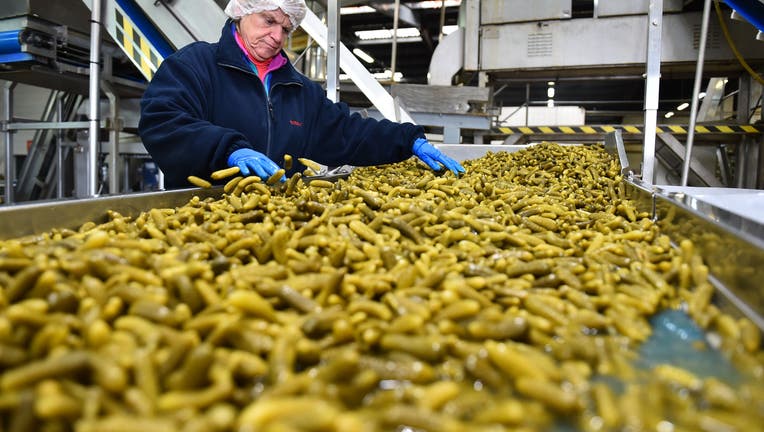U of M study: Food industry vulnerable to 'devastating' cyberattacks

An employee sorts out French gherkins. ((JEAN-FRANCOIS MONIER/AFP/Getty Images) / Getty Images)
MINNEAPOLIS (FOX 9) - A new University of Minnesota study suggests the food industry needs to take its cybersecurity seriously as threats mount.
The study, released Tuesday, is called “Adulterating More Than Food: The Cyber Risk to Food Processing and Manufacturing.”
It was conducted by the University’s Food Protection and Defense Institute and it shows how the food industry’s cybersecurity is paramount and provides tips to industry professionals to help them keep operations secure.
According to the study, a cybersecurity breakdown could lead to contaminated food threatening public health, causing physical harm to workers, destroying equipment, causing environmental damage and causing financial losses for companies as well.
While the food industry isn’t an obvious target for cyberattacks, the U of M researchers think it soon may be.
“The food industry has not been a target of costly cyberattacks like financial, energy, and health care companies have,” said Stephen Streng, the lead author on the report. “However, as companies in those sectors learn to harden their defenses, the attackers will begin looking for easier victims. This report can help food companies learn about what could be coming their way and how to begin protecting themselves.”
Researchers previously pointed out more than 200 industrial control system vulnerabilities in 2011, a number the U of M believes is increasing each year.
To combat these issues, the report recommends the food industry work closely with IT staff and more routinely assess risks associated with cybersecurity. Failure to do so, the University says, could be “devastating.”
“Cyberattacks could have financially devastating consequences for the food industry, particularly among smaller companies, and in the worst case can threaten the public’s health,” said Amy Kircher, DrPH, director of FPDI. “We hope this report will raise awareness among food industry executives of this potentially severe risk and will inspire them to start addressing it with the same care and urgency they apply to other aspects of food safety.”
To read the full report, visit z.umn.edu/FPDIcybersecurity.

